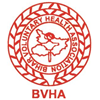My Journey to Menstrual Hygiene Advocacy
Hi, I’m Saniya Kumari, a 17-year-old girl living in the beautiful village of Raghuta, near the Indo-Nepal border in Raxaul Block of East Champaran District of Bihar. My father, Chandan Kumar, works hard to support our family by carrying passengers and goods in his horse cart (Tanga) through the bustling streets of Raxaul town. Life in our village was simple but filled with age-old traditions and beliefs, especially when it came to menstrual hygiene.
Growing up, I witnessed my mother, Lilavati Devi, and aunt using shabby pieces of cloth during their periods, just like the other women in our neighborhood. In our village, basic practices like taking a daily bath during menstruation were considered inauspicious, and my family restricted me from touching certain foods, like pickles. Unaware of the potential health risks associated with these practices, we continued with our customs with a belief that it was the right way which are guided by our orthodox customs.
Then, something remarkable happened. I got the chance to join a special group called “Guria Kishori Group,” formed under the project “Right to be a Girl.” I was thrilled to be part of it! Our group aimed to protect the rights of girls like me and create awareness about crucial issues, including menstrual hygiene.
In the group’s sessions and meetings, I underwent valuable training on Sexual and Reproductive Health and Rights (SRHR). It was a surprise for me! I realized that our traditional practices were not just outdated; they were harmful. I wanted to change this not just for myself but for my elder sister and all the women in my family too.
I mustered up the courage to talk to my sister first. I explained to her the importance of using sanitary napkins during menstruation, how it could keep us healthy and prevent infections. Initially, she was unsure, but I persisted and showed her the information I had learned. Slowly, she understood and decided to give it a try.
Empowered by my sister’s support, I shared this newfound knowledge with my mother, aunt, and the women in my neighbourhood. They were hesitant at first, but I remained patient and compassionate. I understood that change takes time, especially when it challenges deeply rooted beliefs.
However, the hurdle of managing the cost of sanitary napkins loomed ahead. My family worried about the expense, but I assured them that this small investment was nothing compared to the potential health issues it could prevent in the long run.
I was not alone on this journey. The girls from Guria Kishori Group and I took the initiative to spread awareness throughout Raghuta. We spread awareness and breaking the silence around menstrual hygiene. It wasn’t easy, but our determination to create a positive impact kept us going.
Gradually, we began to see change in our village. More and more women embraced the use of sanitary pads during menstruation, and the old restrictions on bathing and diet were lifted. It was a moment of pride for me and our entire group. Together, we were making a difference!
Today, I stand proud as a menstrual hygiene advocate in my village. Our Guria Kishori Group continues to work tirelessly, spreading awareness and empowering girls to make informed choices about their health and well-being. Together, we can break the barriers of silence and embrace the change we want to see in our world! My journey from unawareness to advocacy has taught me the power of education and community engagement. I’m determined to keep pushing for positive change and inspire others to embrace a brighter, healthier, and more empowered future.
